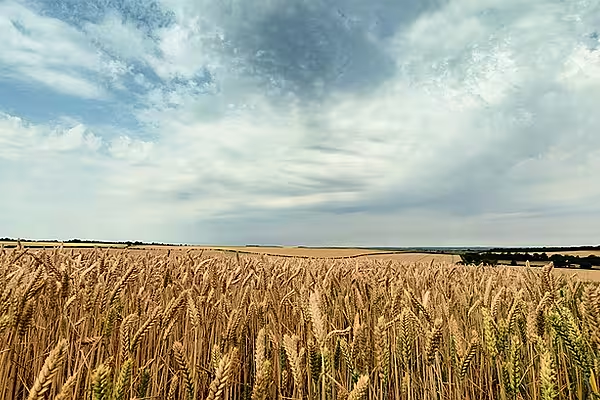Ben Drummond, a third-generation farmer in the west of England, says Brexit is throwing up unprecedented problems for his business.
Plans to expand his family’s 150 acres (60 hectares) of strawberry patches in Herefordshire are now on hold.
The U.K.’s decision to leave the European Union means growers like him don’t know if they’ll be able to attract the migrant labor they need to harvest their crops.
“Most of our operations are manual as strawberries need to be planted and picked by hand,” he said. “We need flexibility to hire seasonal labor for our picking and packing.”
As the U.K. stumbles toward EU trade talks, growers have little idea how immigration rules, tariffs or farm subsidies will change. Food retailers like J Sainsbury Plc warn that a failure to agree on a free-trade deal could see perishables piling up at the border. Brexit uncertainty, and a weak pound, is already detering Europeans from coming to Britain for seasonal jobs, and forcing farmers to cut plans to expand or seek other ways to raise income.
The View From Brussels
Drummond gained planning permission to expand his strawberry fields by 10 percent over the next two years but has decided to wait for clarity on the status of European workers. A crunch point could come in January when he starts recruiting for the peak May-to-June season.
“We are already seeing tightening in the labor market and people are not wanting to come,” Drummond said. “Negative publicity around migration and the lack of certainty is putting them off.”
The number of seasonal employees returning for work on U.K. farms slumped to 16 percent in September from 65 percent at the start of the year, according to the National Farmers’ Union. The average shortfall for horticulture businesses already averaged 11 percent this year, rising to 29 percent in September, it said in a report.
Farmers also face the prospect of fierce competition from U.S. and New Zealand beef and lamb if Britain is forced to lower barriers to imports to win international trade deals. That’s on top of the loss of EU agriculture subsidies, with the U.K. government so far only guaranteeing to bridge the gap until 2022.
Tougher Times
Landowners, tenants and cooperatives are girding for tougher times by curbing spending and in some cases pooling land to increase efficiency.
“Most people are tightening their belts and just holding fire at the moment,” said Nick Wallis, a farmer and managing director of Ridgeway Grain, a storage and processing company in Newbury. “Locally, small farm land ownerships are growing in size to spread costs and get economies of scale.”
Others see opportunities in businesses that are less affected by Brexit, from selling produce outside the EU to generating solar power, or letting out holiday homes as the weak pound spurs Britons to vacation at home.
Potatoes to Dubai
Verity Garrett and her brother George Holdstock shipped potatoes about 3,300 miles (5,300 kilometers) to Dubai from their 650-hectare farm near Canterbury for the first time this year.
“Brexit is definitely making us look at different markets and different options for some of our products,” said Garrett. “It’s all about making sure that our farms are prepared for the modern changes that are about to take place.”
She’s also looking to wider sources of income, after previously converting about 25 hectares of arable land to solar generation that provides stable guaranteed returns.
Industry groups are urging farmers to seek creative ways to deal with Brexit and keep investing in their businesses. The National Farmers Union, with more than 55,000 members, has also been lobbying the government to strike a deal with the EU on agriculture exports and to secure access to labor.
Biggest Challenge
“I am telling farmers that whatever you do, don’t stop investing in your farms because you are worried about Brexit,” Guy Smith, NFU vice president, said in London. “Farmers are used to volatile circumstances in terms of the weather and commodities, and political volatility due to Brexit is just another challenge.”
Yet, the reality for those struggling with tight margins and pressure from supermarkets seeking to absorb faster inflation from the weak pound is that they can’t take excessive risks.
Charles Sercombe has been rearing sheep for more than two decades and has over 2,000 across his 900 acres in Melton Mowbray. Typically, 38 percent of the U.K.’s lambs are exported, with almost all of that going to the EU, said Sercombe, who’s chairman of the NFU national livestock board.
“We were planning to expand our farm and increase the number of ewes but have now taken the decision to hold fire and maintain the numbers this year because about a third of my production will be for sale only once we have exited the EU,” he said. “Brexit is certainly the biggest challenge to agriculture since the Second World War.”
News by Bloomberg, edited by ESM. Click subscribe to sign up to ESM: The European Supermarket Magazine.














